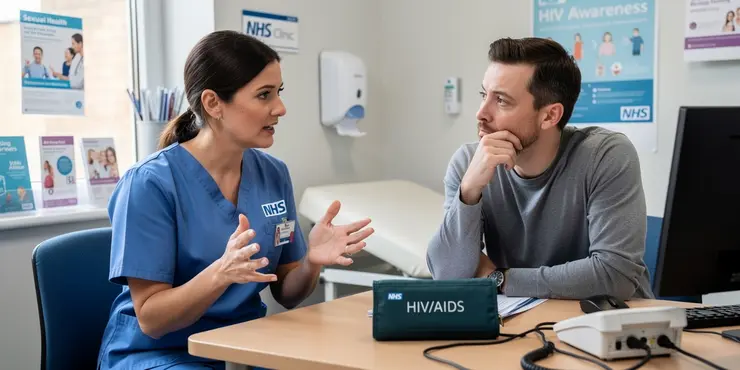
Find Help
More Items From Ergsy search
-
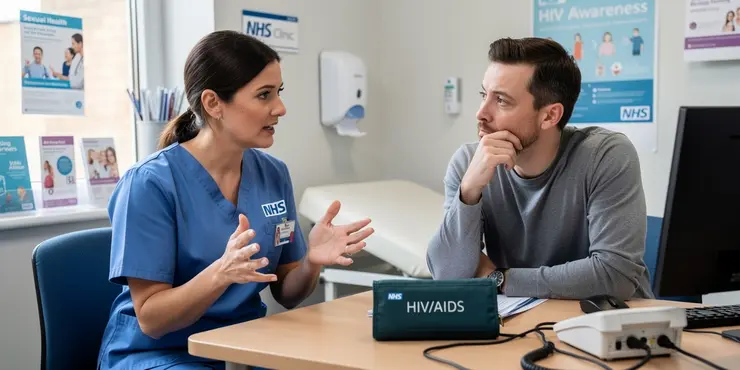
What is AIDS?
Relevance: 100%
-
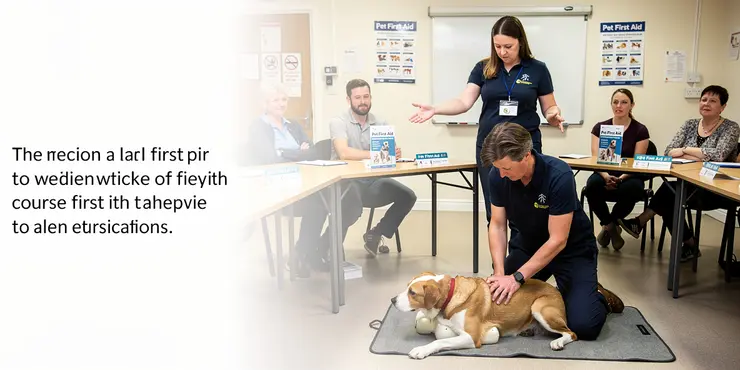
Are there first aid courses for pets?
Relevance: 90%
-

What is HIV / AIDS?
Relevance: 90%
-
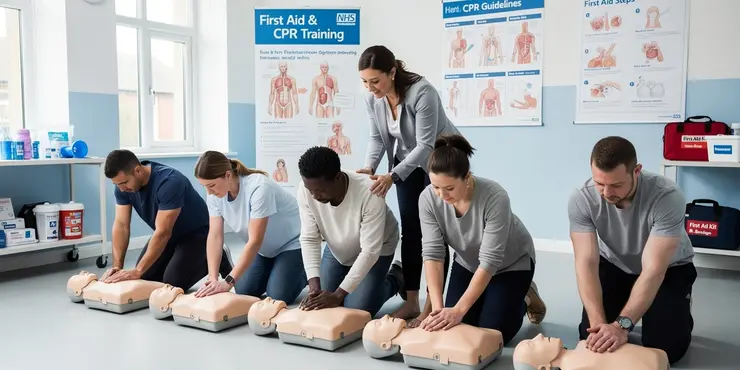
Do first aid certifications expire?
Relevance: 90%
-
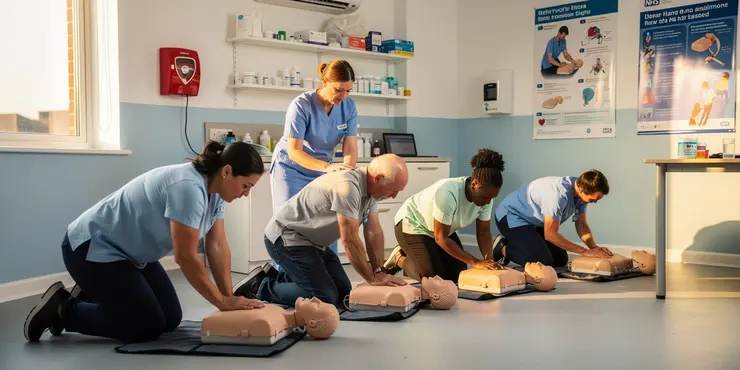
Where can I learn First Aid?
Relevance: 87%
-

How to remove your hearing aid
Relevance: 87%
-

Are there mobile apps that teach first aid?
Relevance: 87%
-
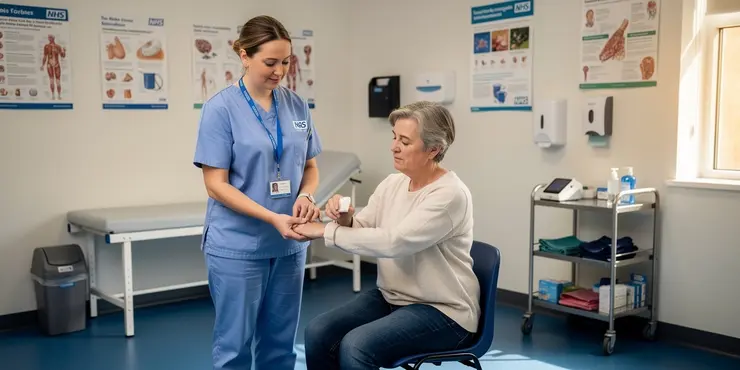
Are there free resources for learning first aid?
Relevance: 86%
-

How to insert your hearing aid
Relevance: 86%
-
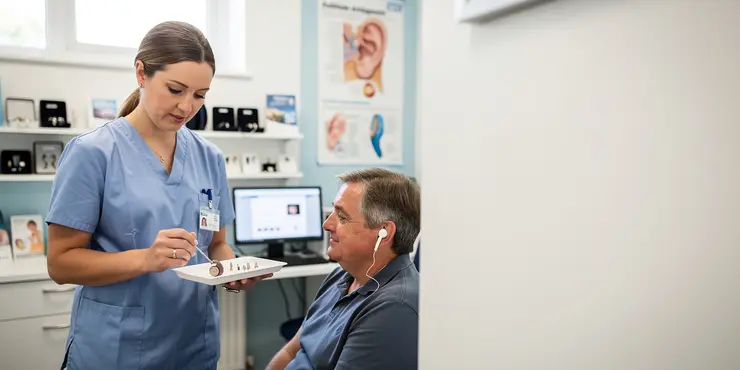
How to clean your hearing aid
Relevance: 86%
-
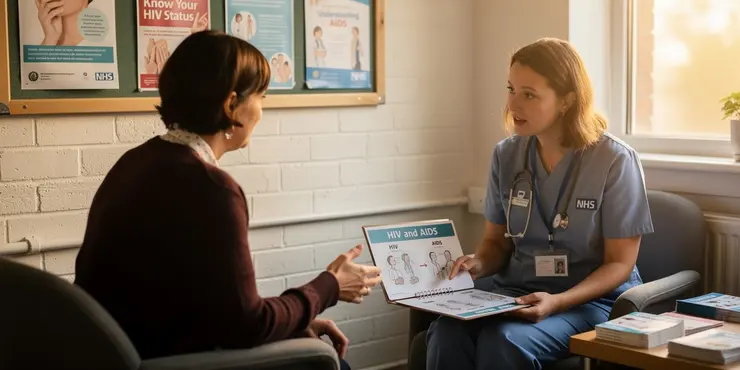
What is the difference between HIV and AIDS?
Relevance: 86%
-

Are there financial aids available for further education?
Relevance: 86%
-
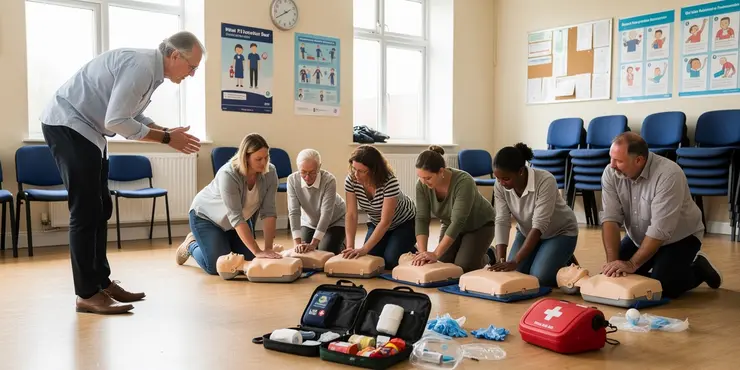
Can I learn first aid as a group?
Relevance: 86%
-

How to turn your hearing aids on and off
Relevance: 83%
-

What is the best first aid certification to obtain?
Relevance: 83%
-
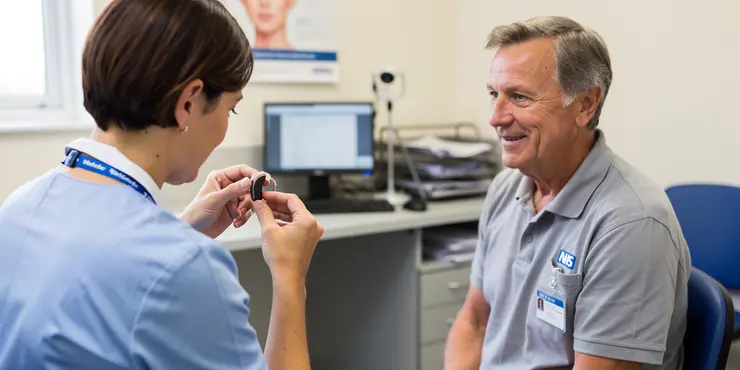
Showing you around your hearing aid
Relevance: 83%
-
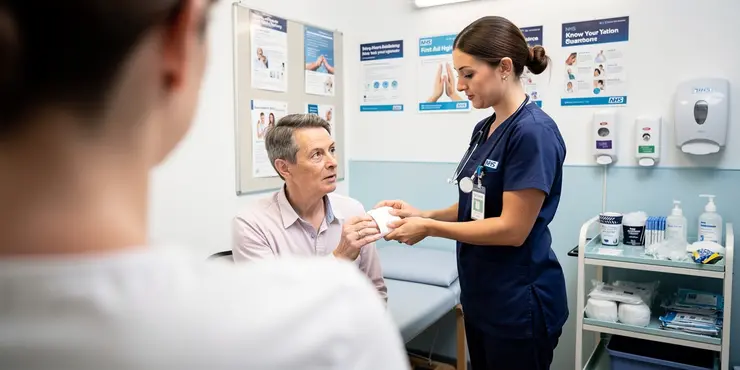
Where can I learn first aid online?
Relevance: 83%
-
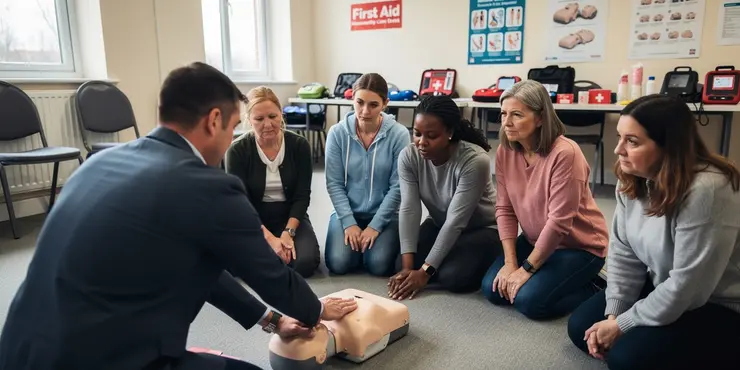
Can I take first aid courses in person?
Relevance: 83%
-

How to change your hearing aid battery
Relevance: 83%
-
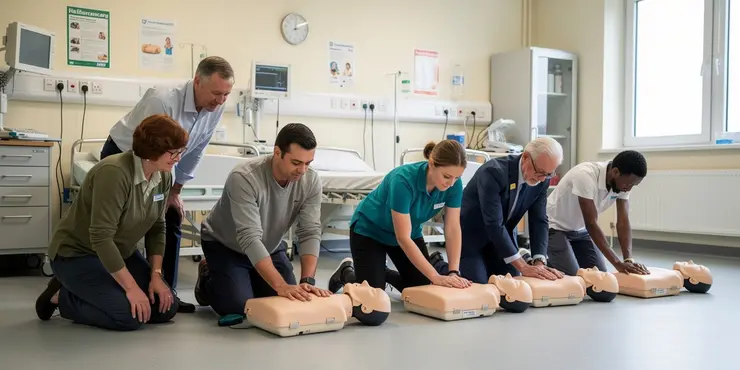
What topics are covered in a first aid course?
Relevance: 81%
-
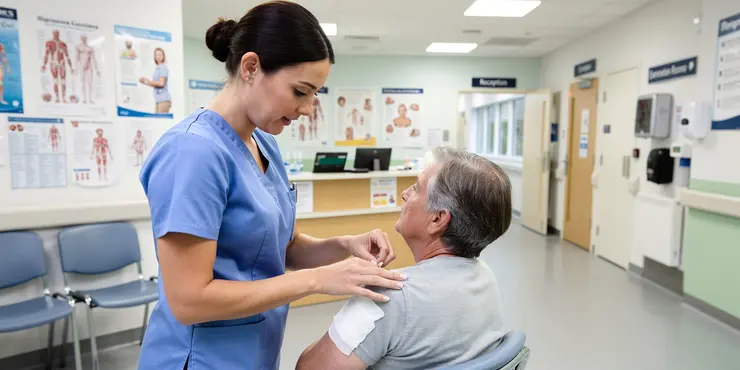
Can first aid skills help in daily life?
Relevance: 80%
-
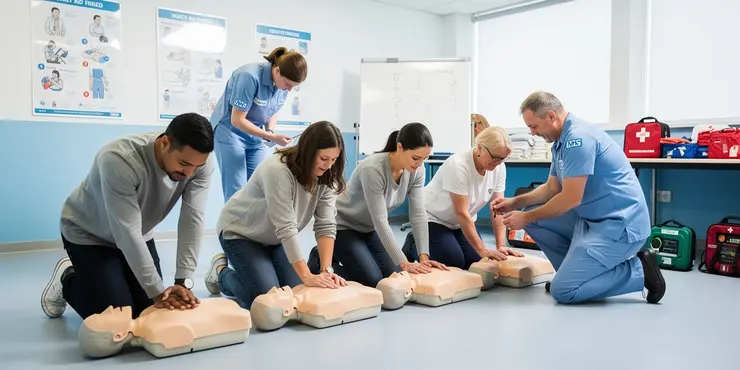
Do I need to bring anything to a first aid course?
Relevance: 80%
-
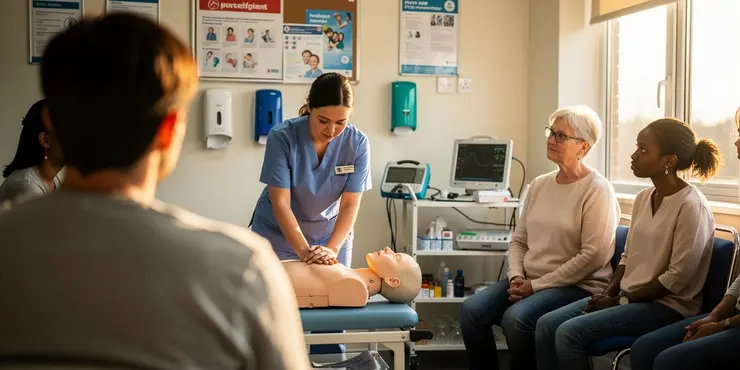
How can I practice first aid skills effectively?
Relevance: 80%
-

What age is appropriate to start learning first aid?
Relevance: 79%
-
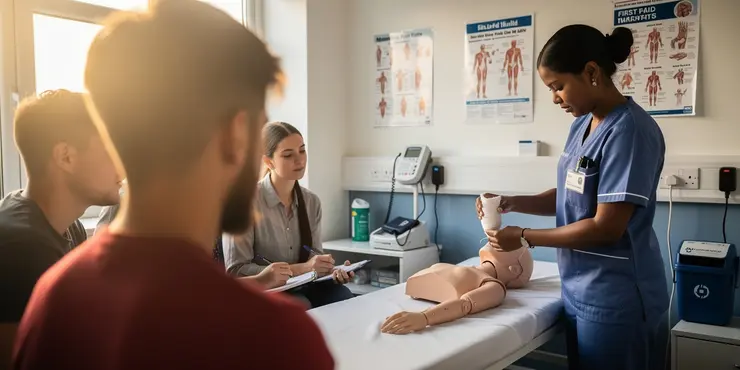
Can first aid courses be applied for college credit?
Relevance: 79%
-
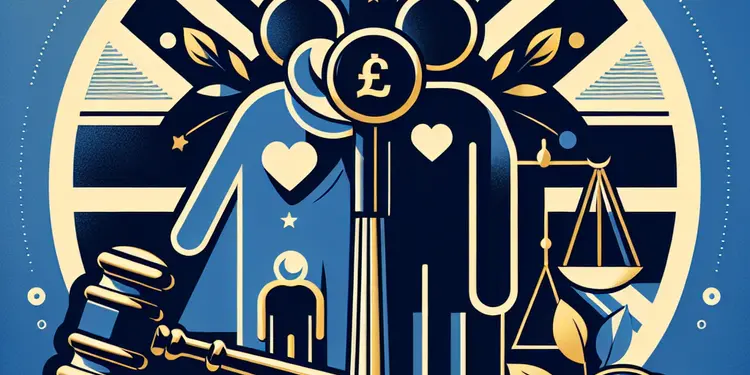
Are there modifications to legal aid access in family court for 2026?
Relevance: 78%
-
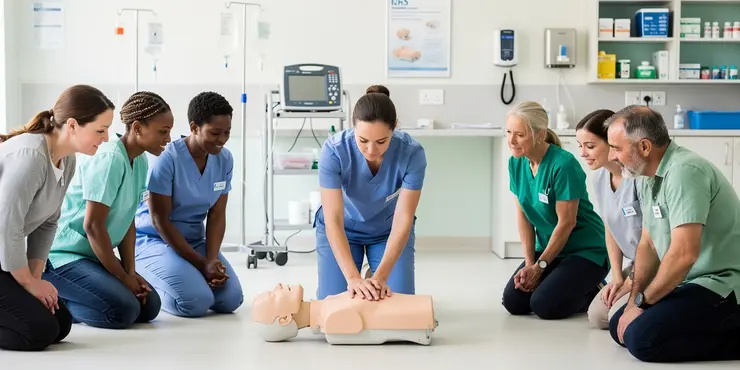
How important is it to learn CPR along with first aid?
Relevance: 77%
-

How does the payment affect students' financial aid packages?
Relevance: 77%
-

Legal Aid Cuts: Campaigners Warn of Access to Justice Crisis
Relevance: 76%
-

Why is the UK cutting funding to AIDS, Tuberculosis, and Malaria research?
Relevance: 71%
-
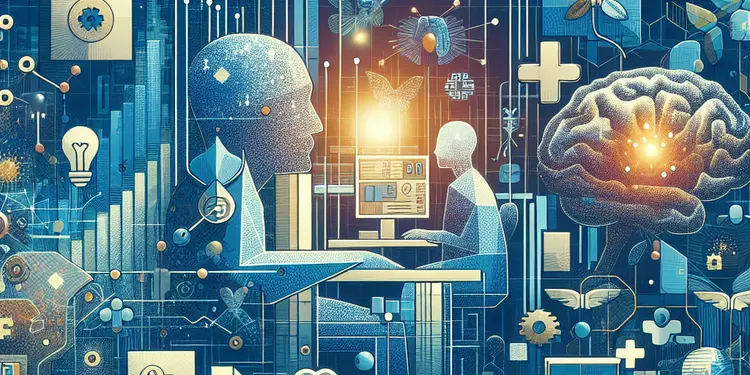
Can technology aid in the care of Alzheimer's patients?
Relevance: 69%
-

How do mixed exercises aid in functional fitness?
Relevance: 68%
-

Can orange juice aid in hydration?
Relevance: 67%
-
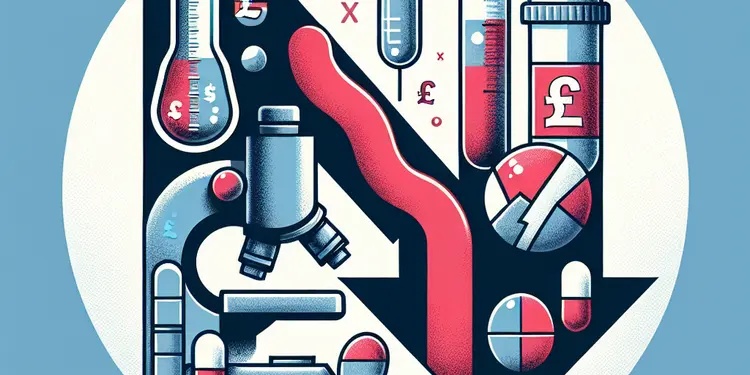
How significant is the reduction in funding for AIDS, Tuberculosis, and Malaria research?
Relevance: 66%
-

What lifestyle changes can aid in prostate cancer recovery?
Relevance: 63%
-

Are there specific first aid courses for different professions?
Relevance: 62%
-
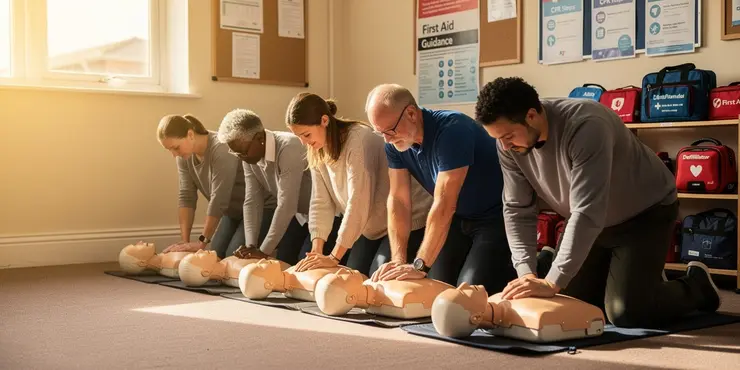
What language options are available for first aid courses?
Relevance: 59%
-

What role does technology play in aiding support workers?
Relevance: 53%
-

Can reducing sugar intake aid weight loss?
Relevance: 51%
-

Is it important to renew my first aid certification?
Relevance: 51%
Understanding AIDS
AIDS (Acquired Immunodeficiency Syndrome) is a serious condition caused by the Human Immunodeficiency Virus (HIV). HIV attacks the body's immune system, specifically the CD4 cells (T cells), which help the immune system fight off infections. If untreated, HIV reduces the number of T cells, making the person more vulnerable to infections and certain cancers. AIDS represents the most advanced stage of HIV infection, characterized by a severely compromised immune system.
Symptoms and Progression
HIV infection progresses through several stages, and the symptoms vary depending on the individual and stage of the disease. Initially, many people experience flu-like symptoms within 2 to 4 weeks after infection, including fever, chills, and rash. This is known as acute HIV infection. Following this stage, the virus may remain asymptomatic for several years as it continues to damage the immune system. AIDS is diagnosed when the CD4 cell count falls below 200 cells per cubic millimeter of blood or when someone develops certain opportunistic infections.
Transmission
HIV is transmitted through certain body fluids from a person with HIV, such as blood, semen, vaginal and rectal fluids, and breast milk. The most common ways HIV is spread are through unprotected sexual contact, sharing needles, and from mother to child during pregnancy, birth, or breastfeeding. HIV cannot be transmitted through casual contact, air, water, or mosquito bites.
Prevention and Treatment
Preventing HIV involves using condoms during sexual intercourse, using sterile needles, and taking pre-exposure prophylaxis (PrEP) if at high risk. Treatment for HIV involves antiretroviral therapy (ART), which, when taken correctly, can significantly reduce the viral load, improving the person’s quality of life and reducing the risk of spreading the virus. Although ART can’t cure HIV, it helps people with HIV live long, healthy lives and prevents progression to AIDS.
The UK Perspective
In the UK, public health initiatives focus on increasing awareness about HIV and AIDS, promoting regular testing, and ensuring accessibility to treatment. Clinics provide free, confidential testing and healthcare services to support those living with the virus. Stigma surrounding HIV/AIDS remains a barrier, and continued efforts are needed to educate and reduce misconceptions.
Living with AIDS
Living with AIDS requires ongoing medical care and treatment. Support groups and counselling can offer valuable assistance to those affected. The advancements in ART have transformed AIDS from a terminal illness to a manageable chronic condition, highlighting the importance of early diagnosis and sustained treatment. As research continues, the focus is on finding a cure and developing better prevention and treatment options.
Understanding AIDS
AIDS is a serious illness. It is caused by a virus called HIV. HIV attacks your body's defense system that fights germs. This system has special cells called CD4 cells or T cells. If you do not treat HIV, it makes these cells go away. This can make you very sick with infections or cancer. AIDS is when HIV has really hurt your body’s defense system.
Symptoms and Progression
HIV makes you sick in stages. At first, you may feel like you have the flu. This can happen a few weeks after you get the virus. You might have a fever, feel cold, or get a rash. This is called acute HIV infection. After that, the virus might not show any signs for a long time, but it is still harming your body. AIDS is when your CD4 cells are very low, or you get other serious illnesses.
Transmission
HIV spreads through certain body fluids like blood or milk from a person who has HIV. You can catch it through sex without a condom or by sharing needles. A mom can also pass it to her baby during birth or breastfeeding. You cannot catch HIV from touching or from things like air, water, or bug bites.
Prevention and Treatment
To stop getting HIV, use condoms during sex, use clean needles, and talk to your doctor about medicine like PrEP if you are at high risk. If you have HIV, there is a treatment called ART. You have to take it the right way. It helps you live a long and healthy life and stops you from giving the virus to others. ART does not cure HIV, but it helps a lot.
The UK Perspective
In the UK, there are programs to teach people about HIV and AIDS. They encourage people to get tested and make sure that everyone can get treatment. Clinics offer free and private tests and care. Some people still have wrong ideas about HIV/AIDS, and more teaching is needed to stop this.
Living with AIDS
If you have AIDS, you need to see a doctor regularly and get treatment. Support groups and talking to someone can help you feel better. ART has changed AIDS from being a deadly illness to something you can live with. Finding out you have HIV early and getting treatment is very important. Scientists are still looking for a cure and better ways to stop and treat HIV.
Frequently Asked Questions
What is AIDS?
AIDS stands for Acquired Immunodeficiency Syndrome, a disease caused by the human immunodeficiency virus (HIV).
How is AIDS different from HIV?
HIV is the virus that causes the condition, while AIDS is the advanced stage of the infection where the immune system is severely damaged.
What are the symptoms of AIDS?
Symptoms include weight loss, fever, fatigue, and recurrent infections.
How is AIDS diagnosed?
AIDS is diagnosed through blood tests that detect the presence of HIV and measure immune function.
Can AIDS be treated?
While there is no cure for AIDS, it can be managed with antiretroviral therapy (ART) to control HIV and improve quality of life.
How is HIV transmitted?
HIV is primarily transmitted through unprotected sex, sharing needles, and from mother to child during birth or breastfeeding.
Can HIV be prevented?
Yes, through safe sex practices, using clean needles, and taking preventive medications like PrEP.
What is the global impact of AIDS?
AIDS is a major global public health issue, particularly in sub-Saharan Africa, leading to millions of deaths.
Is there a vaccine for HIV?
As of now, there is no vaccine for HIV, but research is ongoing.
What are opportunistic infections?
Opportunistic infections are illnesses that occur more frequently and with greater severity in individuals with weakened immune systems, like those with AIDS.
How can people with HIV lead healthy lives?
By adhering to ART, maintaining a healthy lifestyle, and getting regular medical care.
What is the significance of CD4 cells in HIV/AIDS?
CD4 cells are a type of white blood cell targeted by HIV. Their count indicates immune system health in infected individuals.
What are the stages of HIV infection?
The three stages are acute HIV infection, clinical latency, and AIDS.
Can someone with HIV feel healthy?
Yes, many people with HIV remain asymptomatic for years with proper treatment.
What is the role of antiretroviral therapy (ART)?
ART helps control the virus, maintain immune function, and reduce the risk of HIV transmission.
Why is early detection of HIV important?
Early detection allows for timely treatment, reducing the risk of developing AIDS and transmission to others.
Is it possible to live a normal lifespan with HIV?
With effective treatment, many people with HIV can live long, healthy lives.
What should someone do if they think they have been exposed to HIV?
They should seek medical attention immediately and consider starting post-exposure prophylaxis (PEP) within 72 hours.
How does HIV affect children compared to adults?
HIV progresses faster in children, but with treatment, infected children can live healthy lives.
What is the stigma associated with HIV/AIDS?
Stigma can lead to discrimination, isolation, and mental health issues for those living with the disease, which is why awareness and education are crucial.
What is AIDS?
AIDS stands for Acquired Immune Deficiency Syndrome. It is a sickness that happens when your body can't fight off germs and infections very well. This happens because a virus called HIV hurts the immune system. The immune system is like the body's defense team.
If you have AIDS, it means HIV has made your defense team weak. This can make you get sick easily from things like colds or the flu.
Some ways to support understanding:
- Use pictures to show how HIV affects the body.
- Talk to a doctor or nurse who can explain more in simple words.
- Watch videos made for kids about how to stay healthy.
AIDS means a sickness you get when a virus called HIV makes your body weak.
What is the difference between HIV and AIDS?
HIV is a virus that can make you sick. It stands for Human Immunodeficiency Virus.
AIDS is an illness you can get if HIV makes your body too weak to fight germs.
Helpful Tips:
- Use pictures to help understand.
- Ask someone to explain any hard words.
HIV is a kind of germ that makes you feel very sick. It can lead to AIDS, which is when your body has a hard time staying healthy.
What signs show someone has AIDS?
Signs you might notice are losing weight, having a fever, feeling very tired, and getting sick again and again.
How do doctors know if someone has AIDS?
Doctors do tests to see if someone has AIDS. They look for a virus called HIV, which can cause AIDS.
First, doctors test for HIV. They might take a little bit of blood from your arm or use some other tests. If you have HIV, doctors will do more tests to see how healthy your body is.
Doctors are there to help. If you have any questions, you can ask them.
If you want to learn more, you can ask a trusted adult for help. You can also look for books or watch videos made for kids about HIV and AIDS. These can make it easier to understand.
Doctors check for AIDS by doing a special blood test.
The test looks for a virus called HIV and checks how strong the immune system is.
If reading is hard, you can try using audiobooks or ask someone to read with you.
Can AIDS be treated?
AIDS is a sickness caused by a virus called HIV. Right now, there is no cure for AIDS, but there are medicines that can help. These medicines are called HIV treatments.
The medicines help people with HIV feel better and live longer. They stop the virus from making more copies of itself. This helps the body stay strong.
If someone has HIV, they should talk to a doctor. The doctor can explain how to take the medicines and help them stay healthy.
Using tools like pictures or videos can make learning about HIV and AIDS easier.
There is no cure for AIDS, but medicine can help. This medicine is called ART. It helps control HIV and makes people feel better.
How can you get HIV?
HIV is a virus that people can get from other people. Here’s how:
- Through blood: This can happen if you share needles.
- Through body fluids: This can happen during unprotected sex.
- From mother to baby: A mom can give HIV to her baby during birth or breastfeeding.
If you need help understanding about HIV, you can:
- Ask a doctor or nurse. They can explain more.
- Look at pictures or videos. Sometimes they make things easier to understand.
- Use apps or websites that explain things in simple words. They can be very helpful.
HIV can spread in a few ways:
- Having sex without a condom.
- Sharing needles.
- From a mom to her baby during birth or when breastfeeding.
Here are some tools that can help:
- Use condoms during sex.
- Don't share needles with other people.
- If a mom has HIV, talk to a doctor about ways to keep the baby safe.
How can I stop getting HIV?
Here are some ways to stay safe from HIV:
- Use a condom when you have sex.
- Get tested for HIV regularly.
- Make sure your partner gets tested too.
- Do not share needles.
Ask a doctor or nurse for more help. They can give you medicine or advice.
Yes, you can stop getting HIV by doing these things:
- Always have safe sex. This means using a condom.
- Do not share needles. Always use clean ones.
- Take medicine called PrEP if you are at risk. This helps keep you safe.
How does AIDS affect the world?
AIDS is a sickness that affects many people all over the world.
Here are some easy ways to understand its impact:
- Health: AIDS makes people very sick. This means doctors and nurses have to work hard to help them.
- Families: When someone has AIDS, families feel sad and worried. They might need help from others.
- School and Work: People with AIDS might find it hard to go to school or work. This can make learning and earning money difficult.
- Communities: If many people have AIDS, it can affect the whole community. Everyone needs to help out more.
To learn and understand more, you can use:
- Books with pictures and simple words.
- Videos that explain things slowly.
- Talk to a teacher or a parent for help.
AIDS is a big health problem in the world. It is very bad in a place called sub-Saharan Africa. Many people have died because of it.
Some ways to get help are:
- Talking to a doctor.
- Joining a support group.
- Using medicine that helps with AIDS.
Is there a vaccine for HIV?
No, there is no vaccine for HIV yet. But scientists are trying to make one.
HIV is a virus that can make people very sick. A vaccine could help stop people from getting HIV.
To stay safe from HIV, you can:
- Use a condom.
- Get tested for HIV.
- Talk to a doctor about medicine that can help keep you safe.
Right now, there is no vaccine to stop HIV. But people are still working hard to make one.
What are opportunistic infections?
Opportunistic infections are sicknesses that happen when your body is weak. This usually means your body's defense, called the immune system, is not strong. These infections take the chance to make you sick because your body can't fight them off easily.
For example, if someone has a health problem that makes their immune system weak, they might get an opportunistic infection.
To understand better, you can:
- Ask a doctor or nurse.
- Look at simple health books with pictures.
- Watch videos for kids about how the body fights sickness.
Opportunistic infections are sicknesses you get when your body's defense system is weak. These happen more often and can be worse for people with weak immune systems, like those who have AIDS.
How can people with HIV stay healthy?
People with HIV can stay healthy by doing a few important things:
- Take their medicine every day. This helps the body fight the virus.
- Visit the doctor regularly. The doctor can check if the treatment is working.
- Eat healthy food like fruits and vegetables. This gives the body energy and strength.
- Exercise often. Moving the body helps keep it strong.
- Get enough rest. Sleeping well helps the body feel better.
- If feeling sad or worried, talk to someone who can help, like a counselor.
It is also helpful to use reminder tools, like a pill organizer or setting an alarm on the phone, to remember to take medicine.
You can stay healthy by taking your medicine called ART, living a healthy life, and seeing the doctor often.
Why are CD4 cells important in HIV/AIDS?
CD4 cells are a type of white blood cell. They help your body fight germs.
HIV is a virus. It attacks CD4 cells. This makes it harder for your body to stay healthy.
If you have less CD4 cells, it can lead to AIDS. This makes you very sick.
Doctors check CD4 cells to see how strong your body is fighting HIV.
Support tools like pictures or simple videos can help you understand.
CD4 cells are a kind of white blood cell. HIV attacks these cells. The number of CD4 cells shows how strong a person's immune system is if they have HIV.
What happens when someone has HIV?
There are three stages of HIV:
Stage 1: This is called acute HIV infection. It happens right after a person gets the virus.
Stage 2: This is called clinical latency. The virus is still in the body but is not making the person very sick.
Stage 3: This stage is called AIDS. The person becomes very sick because their body cannot fight germs well.
To help understand better, you can use pictures, simple words, or ask someone to explain it to you. Writing things down or using a calendar can also help remember these stages.
Can a person with HIV still feel well?
Yes, someone with HIV can feel well and healthy. They can take medicine to help manage the virus.
Here are some things that can help:
- Take the HIV medicine every day.
- Eat healthy food.
- Get regular check-ups with the doctor.
- Exercise regularly.
With the right care, people with HIV can live long and healthy lives.
Yes, people with HIV can feel okay for many years if they get the right medicine.
What does antiretroviral therapy (ART) do?
Antiretroviral therapy, or ART, is a type of medicine. It helps people who have a virus called HIV. The medicine stops the virus from growing in the body.
Here is how ART helps:
- It keeps people with HIV healthy.
- It lowers the amount of virus in the body.
- It can stop the virus from spreading to other people.
If you need help understanding this, you can:
- Ask a doctor or nurse for help.
- Use pictures or videos to learn more.
- Talk to someone who knows about HIV and ART.
ART is a type of medicine. It helps keep the virus in your body under control. It also makes your body's defense system, called the immune system, strong. ART reduces the chance of spreading HIV to others.
Tools like picture cards or apps with simple explanations can help you understand how ART works.
Why is it important to find HIV early?
Finding HIV early helps keep people healthy. Doctors can give medicine to stop HIV from making people sick. It also helps stop HIV from spreading to other people.
Tools that can help:
- Visit a doctor to get tested.
- Use apps or reminders to take medicine on time.
- Ask friends or family for support.
Finding a problem early helps doctors give the right medicine. This can stop someone from getting very sick and can help them not spread the sickness to others.
Can people with HIV live as long as others?
With the right help, people with HIV can live long and healthy lives.
What to Do If You Think You Have Been Near HIV
If you think you have been close to HIV, here are some steps you can take:
- Go to a doctor or a clinic as soon as you can.
- Tell the doctor why you think you might have touched HIV.
- The doctor might give you medicine to help keep you safe.
- You should take the medicine quickly, within 3 days, if you can.
- Keep taking the medicine every day for a month.
- The doctor may want to do some tests to check your health.
- It's okay to ask questions if you don't understand.
Here are some tools that can help:
- Bring a friend to help you talk to the doctor.
- Write down what the doctor says, so you remember.
- Use a calendar to mark each day you take your medicine.
If you think you have been exposed, go to the doctor right away. Try to start special medicine to protect you within 3 days.
How does HIV affect kids differently from grown-ups?
HIV is a virus that makes people sick. It can make kids and grown-ups sick in different ways.
For Kids:
- Children might get sick more quickly than grown-ups.
- They might need different medicines to help them feel better.
- It is important for kids to see a doctor often to help them stay healthy.
For Grown-ups:
- Adults might get sick more slowly with HIV.
- They might take different medicines than kids.
- Seeing a doctor regularly is important to stay well.
If reading is hard, try:
- Listening to someone read the words to you.
- Using apps that read the words out loud.
HIV affects kids more quickly, but with the right medicine, kids with HIV can live healthy lives.
What do people think about HIV and AIDS?
Some people have wrong ideas about HIV and AIDS. These ideas can make people afraid or treat others unkindly. This is called stigma.
Here are some ways to understand and help:
- Learn the facts: HIV is a virus, and AIDS is an illness it can cause. You can’t get it just by being friends or playing with someone. It spreads through certain ways like blood.
- Talk about it: Share what you know with others. This helps more people understand.
- Be kind and supportive: Treat everyone with respect and kindness, no matter what illnesses they have.
If you want to learn more, ask a grown-up or look for books and videos that explain HIV and AIDS in simple words.
Stigma means treating people unfairly because they are different. This can make people feel alone and sad. It's important to learn about these things so we can be kinder and more understanding.
Useful Links
This website offers general information and is not a substitute for professional advice.
Always seek guidance from qualified professionals.
If you have any medical concerns or need urgent help, contact a healthcare professional or emergency services immediately.
Some of this content was generated with AI assistance. We’ve done our best to keep it accurate, helpful, and human-friendly.
- Ergsy carfully checks the information in the videos we provide here.
- Videos shown by Youtube after a video has completed, have NOT been reviewed by ERGSY.
- To view, click the arrow in centre of video.
- Most of the videos you find here will have subtitles and/or closed captions available.
- You may need to turn these on, and choose your preferred language.
- Go to the video you'd like to watch.
- If closed captions (CC) are available, settings will be visible on the bottom right of the video player.
- To turn on Captions, click settings .
- To turn off Captions, click settings again.
More Items From Ergsy search
-

What is AIDS?
Relevance: 100%
-

Are there first aid courses for pets?
Relevance: 90%
-

What is HIV / AIDS?
Relevance: 90%
-

Do first aid certifications expire?
Relevance: 90%
-

Where can I learn First Aid?
Relevance: 87%
-

How to remove your hearing aid
Relevance: 87%
-

Are there mobile apps that teach first aid?
Relevance: 87%
-

Are there free resources for learning first aid?
Relevance: 86%
-

How to insert your hearing aid
Relevance: 86%
-

How to clean your hearing aid
Relevance: 86%
-

What is the difference between HIV and AIDS?
Relevance: 86%
-

Are there financial aids available for further education?
Relevance: 86%
-

Can I learn first aid as a group?
Relevance: 86%
-

How to turn your hearing aids on and off
Relevance: 83%
-

What is the best first aid certification to obtain?
Relevance: 83%
-

Showing you around your hearing aid
Relevance: 83%
-

Where can I learn first aid online?
Relevance: 83%
-

Can I take first aid courses in person?
Relevance: 83%
-

How to change your hearing aid battery
Relevance: 83%
-

What topics are covered in a first aid course?
Relevance: 81%
-

Can first aid skills help in daily life?
Relevance: 80%
-

Do I need to bring anything to a first aid course?
Relevance: 80%
-

How can I practice first aid skills effectively?
Relevance: 80%
-

What age is appropriate to start learning first aid?
Relevance: 79%
-

Can first aid courses be applied for college credit?
Relevance: 79%
-

Are there modifications to legal aid access in family court for 2026?
Relevance: 78%
-

How important is it to learn CPR along with first aid?
Relevance: 77%
-

How does the payment affect students' financial aid packages?
Relevance: 77%
-

Legal Aid Cuts: Campaigners Warn of Access to Justice Crisis
Relevance: 76%
-

Why is the UK cutting funding to AIDS, Tuberculosis, and Malaria research?
Relevance: 71%
-

Can technology aid in the care of Alzheimer's patients?
Relevance: 69%
-

How do mixed exercises aid in functional fitness?
Relevance: 68%
-

Can orange juice aid in hydration?
Relevance: 67%
-

How significant is the reduction in funding for AIDS, Tuberculosis, and Malaria research?
Relevance: 66%
-

What lifestyle changes can aid in prostate cancer recovery?
Relevance: 63%
-

Are there specific first aid courses for different professions?
Relevance: 62%
-

What language options are available for first aid courses?
Relevance: 59%
-

What role does technology play in aiding support workers?
Relevance: 53%
-

Can reducing sugar intake aid weight loss?
Relevance: 51%
-

Is it important to renew my first aid certification?
Relevance: 51%


